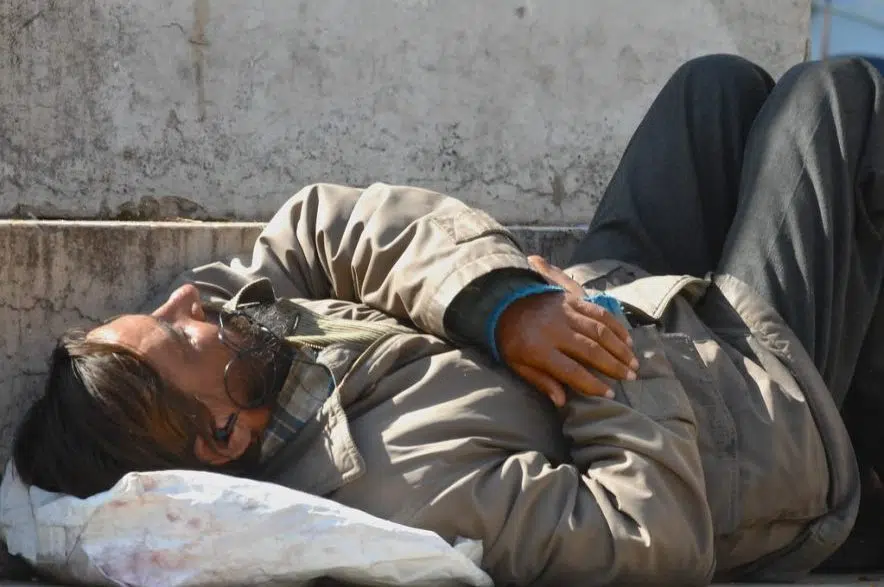The mayors of Saskatoon and Regina welcome the news of new emergency shelter spaces, more supportive housing, additional safety and outreach responses, and increasing the number of addictions and mental health treatment spaces.
The announcements were made on Friday afternoon in Saskatoon by Social Services Minster Gene Makowsky, Health Minister Everett Hindley, and Health and Addictions Minister Tim McLeod.
The province announced $40.2 million in new funding over two years for homelessness and safety initiatives, while also announcing another $49.4 for a five-year mental health and addictions plan.
Regina Mayor Sandra Masters said she appreciated the “holistic” approach by the province.
“Understanding the interconnectedness of the pathway here… to see that you have the emergency space, the complex needs emergency space, then you’re into supportive housing and treatment beds expansion, the outreach teams…it really is trying to look at how those are all interconnected,” she said.
Masters said she appreciated that as the plans come together, there would be learning opportunities along the way.
“It’s a massive first step.”
“In order to preserve life and create pathway for hope is really what we’re trying to get to. And everyone is struggling with how to deal with the opioid drug crisis, and the psychosis, and the violence, and the death that is resulting from it,” she added.
While it’s not everything Saskatoon Mayor Charlie Clark said he asked for, it was a good start.
“By having a coordinated approach, and I think the supportive housing units in particular- you know that’s ultimately the goal…short term facilities aren’t long term answers for people to get housing.
“Getting those supportive housing facilities built and operated… having three ministers here and the announcements of each of these components is key,” he said.
Clark said he would continue to advocate for improvements to the Saskatchewan Income Support (SIS) program as well.
“These are very important steps (and) I think in terms of seeing a coordinated approach to this issue that is gripping all of our cities right across the province right now,” Clark added.
Saskatoon Tribal Council Chief Response
Saskatoon Tribal Council (STC) Chief Mark Arcand said on Friday the provincial investment is a good starting point as well.
STC runs the Emergency Wellness Centre in the Fairhaven neighbourhood and a family oriented 55-unit facility called Kotawan 1 on 20th Street.
“I give the province a lot of credit. They’re making an investment. They’ve never made this investment before. They talk about another 500 mental health and addictions beds over X amount of years- that’s a serious commitment,” he said.
But he added that it would still take more investment to help those with complex needs.
“The medical side – what are we doing, how are we doing it? If somebody’s not going to change what do we do with them? Force them to go to treatment? I don’t know what the answer is,” he said.
Arcand said that there were people who did want help and the the more people helped, including families and children, the more they could show those results.
“We’ve got to be on the same page about how are we helping our community? And making sure that we can always improve somebody’s life the best that we can as a community, as a province,” he explained.
Arcand said he’s been in discussions with the province for some time about options and about ensuring the proper supports and services are also in place for those seeking help.
“I think we just gotta look at the province and say ‘hey, they did the right thing.’ And however long it took, they’re still working on it.”











